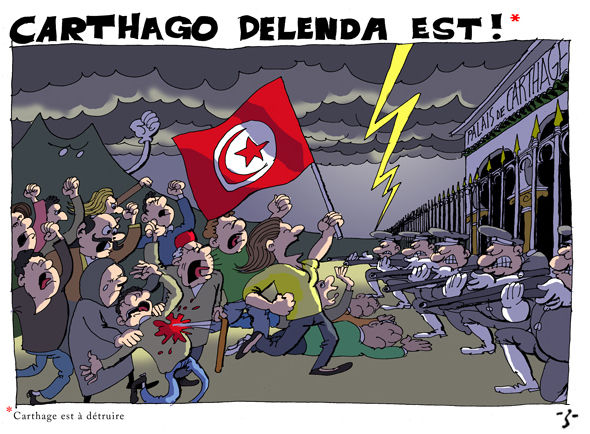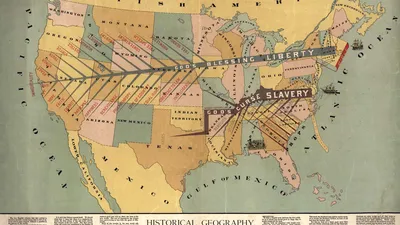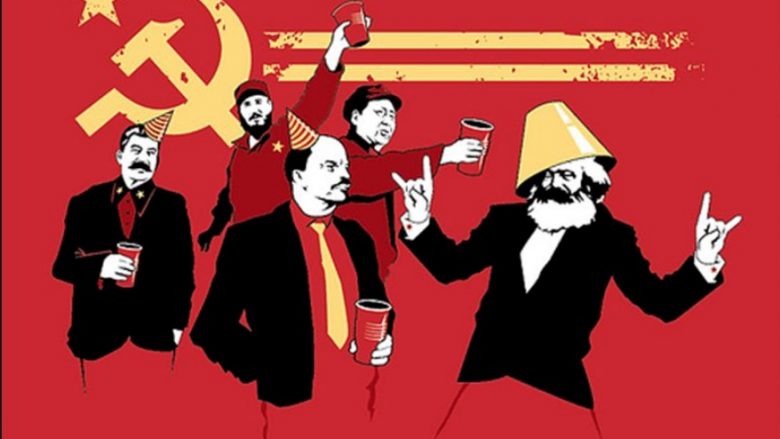Carthago delenda est

Introduction
Carthago delenda est, translating to “Carthage must be destroyed,” is a phrase that epitomizes the intense rivalry between ancient Rome and Carthage. This Latin declaration became a rallying cry for the Romans, reflecting their unwavering determination to eliminate Carthage as a threat. Understanding the origins, usage, and implications of Carthago delenda est offers profound insights into Roman military strategy, political rhetoric, and the broader socio-political landscape of the Mediterranean during the Punic Wars.
For students of History and Social Sciences in their AP Latin classes, delving into the phrase Carthago delenda est not only enhances their understanding of Latin language nuances but also provides a window into the strategic and ideological underpinnings that shaped one of history’s most formidable empires.
Historical Context of Carthago Delenda Est
The phrase Carthago delenda est emerged during a tumultuous period in ancient Mediterranean history, marked by the rise of Rome and its expansionist ambitions clashing with the established power of Carthage. Carthage, a Phoenician city-state located in present-day Tunisia, had grown into a significant maritime and commercial power, rivaling Rome’s influence.
The rivalry between Rome and Carthage culminated in the Punic Wars, a series of three major conflicts that spanned over a century (264-146 BCE). These wars were characterized by intense military engagements, strategic alliances, and profound economic and cultural impacts on both civilizations.
Cato the Elder and the Birth of the Phrase
The phrase Carthago delenda est is famously attributed to Cato the Elder, a Roman senator known for his conservative values and relentless advocacy for the destruction of Carthage. Cato, whose full name was Marcus Porcius Cato, often concluded his speeches in the Roman Senate with Carthago delenda est, regardless of the topic at hand. This persistent reminder underscored his belief that Carthage posed an existential threat to Rome’s supremacy.
Cato’s unwavering stance played a pivotal role in shaping Roman policy and public opinion, ultimately influencing the decision to engage in further conflicts with Carthage. His rhetoric embodied the broader Roman sentiment that only the complete annihilation of Carthage could secure Rome’s dominance in the Mediterranean.
The Punic Wars: Rome vs. Carthage
The Punic Wars were a series of three wars fought between Rome and Carthage, driven by competition for control over strategic territories and trade routes in the western Mediterranean.
First Punic War (264-241 BCE)
The First Punic War was primarily a naval conflict over control of Sicily. Rome, initially inexperienced in naval warfare, built a formidable fleet to challenge Carthage’s dominance at sea. The war concluded with Rome’s victory, leading to the establishment of Roman dominance in Sicily and marking Rome’s first significant overseas acquisition.
Second Punic War (218-201 BCE)
The Second Punic War is renowned for Hannibal Barca’s audacious crossing of the Alps with war elephants to invade Italy. Despite several victories, including the devastating Battle of Cannae, Hannibal’s efforts ultimately failed to secure a decisive victory against Rome. The war concluded with Scipio Africanus defeating Hannibal at the Battle of Zama, leading to Carthage’s loss of its empire and its subjugation by Rome.
Third Punic War (149-146 BCE)
The Third Punic War was marked by Rome’s determination to completely destroy Carthage. Initiated by renewed Roman hostility, the war culminated in the Siege of Carthage. After intense and prolonged conflict, Carthage was utterly destroyed, and its territory was annexed by Rome, effectively ending Carthage as a political entity.
Significance of Carthago Delenda Est in Roman Policy
Carthago delenda est was more than a mere slogan; it was a reflection of Rome’s strategic mindset and political ideology. The phrase encapsulated Rome’s belief in absolute dominance and the elimination of threats to its hegemony.
Strategic Imperatives
Rome viewed Carthage as a formidable rival that threatened its expansionist goals and control over key trade routes. The destruction of Carthage was seen as essential to prevent any future resurgence that could challenge Rome’s supremacy.
Political Mobilization
Cato the Elder’s persistent use of Carthago delenda est served as a political tool to mobilize support for military action against Carthage. By continuously emphasizing the need for Carthage’s destruction, Cato influenced public opinion and parliamentary decisions, paving the way for Rome’s aggressive stance.
Moral and Ideological Justification
The phrase also provided a moral and ideological justification for Rome’s military campaigns. It framed the conflict as not just a territorial dispute but as a necessary action to safeguard Rome’s future and ensure its undivided dominance in the Mediterranean.
Military Strategies and Key Battles
The Punic Wars featured several key battles and military strategies that underscored the phrase Carthago delenda est.
Battle of Cannae (216 BCE)
One of the most significant battles of the Second Punic War, the Battle of Cannae, showcased Hannibal’s tactical genius. Despite being outnumbered, Hannibal’s forces inflicted a massive defeat on the Roman army, demonstrating the vulnerability of Rome’s military strategy. However, Rome’s resilience and ability to replenish its forces eventually led to its victory in the long run.
Battle of Zama (202 BCE)
The decisive Battle of Zama marked the end of the Second Punic War. Led by Scipio Africanus, Rome’s forces defeated Hannibal’s army, reversing the fortunes of the war. This victory not only secured Rome’s dominance but also set the stage for the final destruction of Carthage in the Third Punic War.
Siege of Carthage (149-146 BCE)
The Siege of Carthage was the culmination of Carthago delenda est. Roman forces, determined to obliterate Carthage, laid siege to the city, employing siege engines and relentless tactics. After three years of intense conflict, Carthage was sacked, its population was killed or enslaved, and the city was razed to the ground. This final act fulfilled the prophecy of Carthago delenda est, ensuring that Carthage would never rise again.
Carthago Delenda Est: Beyond a Phrase
While Carthago delenda est became synonymous with Rome’s military aggression, its significance extends beyond mere rhetoric. The phrase embodied a broader ideological shift towards imperialism and expansionism that defined Rome’s trajectory.
Imperial Ambitions
The relentless pursuit of Carthage’s destruction highlighted Rome’s imperial ambitions. It signaled a shift from a regional power to a dominant empire with far-reaching influence across the Mediterranean and beyond.
Legacy of Total Warfare
Carthago delenda est set a precedent for total warfare, where the complete annihilation of a rival was deemed necessary for security and dominance. This approach influenced Rome’s future military campaigns and interactions with other emerging powers.
Cultural Impact
The phrase left an indelible mark on Roman culture, symbolizing the collective will and determination of the Roman state. It became a representation of Rome’s unyielding pursuit of greatness and its capacity for decisive, if ruthless, action.
Cultural and Political Implications
The use of Carthago delenda est had significant cultural and political implications for Rome and the broader Mediterranean world.
Political Unification
The shared goal of destroying Carthage fostered political unity within Rome. It transcended individual ambitions and brought together various factions under a common cause, strengthening the Roman state.
Propaganda and Public Sentiment
The phrase served as effective propaganda, shaping public sentiment and garnering support for prolonged military campaigns. It reinforced the perception of Carthage as a perpetual threat that needed to be eradicated for Rome’s survival.
Moral Justification
Carthago delenda est provided a moral justification for war, framing the conflict as a necessary evil to secure peace and prosperity. This moral framing made it easier for Romans to accept the sacrifices and hardships associated with prolonged warfare.
Impact on Carthage
The relentless pursuit of Carthage’s destruction had devastating effects on Carthaginian society and economy. It led to the complete dismantling of Carthage’s infrastructure, the loss of its maritime prowess, and the annihilation of its political and military leadership.
The Fall of Carthage and Its Aftermath
The fall of Carthage in 146 BCE was a watershed moment in ancient history, marking the end of the Punic Wars and the definitive rise of Rome as the dominant power in the Mediterranean.
Destruction of Carthage
Rome’s siege tactics and overwhelming military force led to the complete destruction of Carthage. The city was razed, its population was killed or enslaved, and its territories were annexed into the Roman Republic. This obliteration fulfilled the ominous prophecy of Carthago delenda est.
Roman Dominance in the Mediterranean
With Carthage’s fall, Rome emerged unchallenged in the western Mediterranean. This dominance facilitated further expansion into other regions, including Spain, North Africa, and parts of the Eastern Mediterranean.
Economic and Political Integration
The annexation of Carthaginian territories led to the integration of Carthage’s economic resources and strategic locations into the Roman Republic. This integration bolstered Rome’s economy, expanded its trade networks, and enhanced its military capabilities.
Cultural Assimilation and Influence
Rome assimilated aspects of Carthaginian culture, technology, and administration. This cultural blending enriched Roman society and contributed to its long-term stability and adaptability.
Long-Term Consequences
The destruction of Carthage set a precedent for Rome’s approach to its rivals, emphasizing total victory over negotiation or compromise. This approach influenced Rome’s future conflicts and contributed to its reputation as an unstoppable imperial force.
Legacy of Carthago Delenda Est
The legacy of Carthago delenda est extends far beyond the ancient world, influencing modern political thought, military strategy, and cultural narratives.
Political Rhetoric
The phrase Carthago delenda est has been referenced in various contexts as a symbol of unwavering determination and the pursuit of complete victory. It serves as a historical example of effective political rhetoric used to mobilize support for a cause.
Military Strategy
Carthago delenda est exemplifies the concept of total warfare, where the complete destruction of an adversary is pursued to eliminate any future threat. This strategy has been studied and emulated in various military doctrines throughout history.
Cultural Symbolism
The phrase has permeated popular culture, appearing in literature, films, and political discourse as a representation of relentless ambition and the drive for dominance. It serves as a cautionary tale of the consequences of absolute power and the importance of strategic balance.
Educational Value
For students and scholars, Carthago delenda est provides a rich case study in political rhetoric, military strategy, and the dynamics of empire-building. It offers valuable lessons on the interplay between language, power, and historical outcomes.
Modern References and Usage
Carthago delenda est continues to resonate in modern times, symbolizing various themes related to conflict, rivalry, and strategic imperatives.
Political Slogans
Modern political movements and leaders sometimes invoke Carthago delenda est to emphasize their commitment to eliminating perceived threats. The phrase serves as a powerful tool for galvanizing support and reinforcing a sense of urgency.
Popular Culture
The phrase has found its way into literature, movies, and television shows, often used to depict determination and the pursuit of victory. It is frequently referenced in works that explore themes of rivalry and conquest.
Strategic Studies
Military academies and strategic studies programs analyze Carthago delenda est as an example of effective rhetoric and total warfare strategy. It provides insights into how language can shape military and political objectives.
Educational Programs
History and Latin courses incorporate Carthago delenda est into their curricula to illustrate the use of Latin in political discourse and to explore the historical context of the Punic Wars. It serves as a bridge between language studies and historical analysis.
Conclusion
Carthago delenda est encapsulates a pivotal moment in Roman history, symbolizing the relentless drive for dominance and the lengths to which Rome would go to secure its supremacy. The phrase’s enduring legacy serves as a testament to the power of rhetoric, the impact of strategic military thinking, and the profound consequences of imperial ambition.
For students of History and Social Sciences, particularly those engaged in AP Latin studies, Carthago delenda est offers a multifaceted lens through which to examine the complexities of ancient Rome, the dynamics of empire-building, and the enduring influence of historical narratives on modern thought and culture.
Frequently Asked Questions (FAQs)
1. What does “Carthago delenda est” mean?
Answer: “Carthago delenda est” translates to “Carthage must be destroyed.” It was a Latin phrase used by Cato the Elder to emphasize the need for Rome to completely annihilate its rival, Carthage, to ensure Rome’s dominance in the Mediterranean.
2. Who coined the phrase “Carthago delenda est”?
Answer: The phrase “Carthago delenda est” is attributed to Cato the Elder, a Roman senator and statesman who consistently used it in his speeches to advocate for the destruction of Carthage.
3. Why did Rome want to destroy Carthage?
Answer: Rome aimed to destroy Carthage to eliminate its powerful rival, secure control over strategic territories and trade routes in the Mediterranean, and prevent any future threat to Roman supremacy.
4. During which wars was “Carthago delenda est” prominent?
Answer: The phrase was most prominent during the Punic Wars, particularly the Second and Third Punic Wars, as Rome sought to decisively defeat Carthage.
5. What was Cato the Elder’s role in the Punic Wars?
Answer: Cato the Elder was a vocal advocate for the destruction of Carthage. His persistent rhetoric, including the use of “Carthago delenda est,” influenced Roman policy and public opinion, contributing to Rome’s decision to engage in the Third Punic War.
6. How did “Carthago delenda est” influence Roman military strategy?
Answer: The phrase reinforced Rome’s commitment to total victory and the complete destruction of Carthage. It underscored the strategic imperative of eliminating Carthage’s ability to challenge Rome’s dominance, shaping Rome’s aggressive military campaigns.
7. What impact did the destruction of Carthage have on the Mediterranean?
Answer: The destruction of Carthage solidified Rome’s unchallenged dominance in the western Mediterranean, expanded its territories, and paved the way for further imperial expansion and consolidation of power.
8. How is “Carthago delenda est” used in modern contexts?
Answer: In modern contexts, “Carthago delenda est” is often referenced as a symbol of relentless pursuit of a goal or the necessity of completely eliminating a perceived threat. It is used in political rhetoric, literature, and strategic studies to illustrate similar themes of rivalry and dominance.
9. What were the Punic Wars?
Answer: The Punic Wars were a series of three wars fought between Rome and Carthage from 264 BCE to 146 BCE. These wars were primarily over control of the western Mediterranean and were crucial in establishing Rome’s dominance.
10. What led to the outbreak of the Third Punic War?
Answer: The Third Punic War was sparked by renewed Roman hostility and the persistent call by Cato the Elder for the destruction of Carthage. Economic tensions, political ambitions, and the desire to eliminate Carthage as a rival led to the outbreak of the war.
11. What was the outcome of the Battle of Zama?
Answer: The Battle of Zama in 202 BCE resulted in a decisive victory for Rome, led by Scipio Africanus, over Hannibal’s Carthaginian forces. This battle marked the end of the Second Punic War and led to Carthage’s eventual destruction.
12. How did Carthage recover after the First Punic War?
Answer: After losing the First Punic War, Carthage recovered economically by focusing on trade and expanding its territories in Spain. However, tensions with Rome remained high, eventually leading to the Second Punic War.
13. What role did Hannibal play in the Punic Wars?
Answer: Hannibal Barca was a Carthaginian general renowned for his tactical brilliance, especially his crossing of the Alps to invade Italy during the Second Punic War. Despite several victories, his efforts ultimately failed to secure a decisive victory against Rome.
14. How did Rome rebuild after the Second Punic War?
Answer: After the Second Punic War, Rome strengthened its military, expanded its territories, and implemented strategic alliances. The victory at the Battle of Zama also enhanced Rome’s reputation and paved the way for further expansion.
15. What was the significance of the Siege of Carthage?
Answer: The Siege of Carthage, lasting from 149-146 BCE, was the final and decisive conflict of the Third Punic War. Its outcome led to the complete destruction of Carthage, the annexation of its territories by Rome, and the establishment of Rome as the dominant power in the Mediterranean.
16. How did “Carthago delenda est” influence Roman legislation?
Answer: The persistent advocacy of “Carthago delenda est” influenced Roman legislation by prioritizing military funding, expanding the Roman fleet, and enacting laws that supported war efforts against Carthage. It reinforced policies aimed at mobilizing resources for total war.
17. What lessons can be learned from “Carthago delenda est”?
Answer: “Carthago delenda est” teaches the importance of strategic determination, the impact of rhetoric on public policy, and the consequences of total warfare. It also highlights the dangers of absolute power and the ethical implications of pursuing complete annihilation of a rival.
18. How did Rome’s victory over Carthage affect its economy?
Answer: Rome’s victory over Carthage significantly boosted its economy by gaining control over Carthaginian territories, which included lucrative trade routes and resources. The annexation of Carthage also eliminated competition, allowing Rome to dominate Mediterranean commerce.
19. In what ways did the fall of Carthage shape future Roman foreign policy?
Answer: The fall of Carthage established a precedent for Rome’s foreign policy of absolute dominance and the elimination of rival powers. It influenced Rome’s approach to future conflicts, emphasizing the importance of total victory and the prevention of any future threats to its supremacy.
20. What is the modern historical perspective on “Carthago delenda est”?
Answer: Modern historians view “Carthago delenda est” as a significant example of the use of rhetoric in shaping political and military policy. It is studied for its impact on the Punic Wars, its role in Rome’s imperial expansion, and its ethical implications regarding war and rivalry.
References
- Encyclopedia Britannica – Carthago delenda est
- History.com – Punic Wars
- BBC – The Punic Wars
- Ancient History Encyclopedia – Cato the Elder
- Khan Academy – The Punic Wars
- Livius.org – Cato the Elder
- Ancient Origins – Hannibal
- University of Chicago – Scipio Africanus
- The Metropolitan Museum of Art – Roman Warfare
- Oxford Reference – Feudalism
- National Geographic – Silk Road
- Smithsonian Magazine – Cato the Elder
- Livius.org – Siege of Carthage
- ThoughtCo – Cato the Elder
- BBC – Roman Empire
- Ancient History Encyclopedia – Scipio Africanus
- Khan Academy – Hannibal
- Oxford Bibliographies – Punic Wars
- Ancient Origins – Third Punic War
- HistoryNet – Battle of Zama
- Cambridge University Press – Roman Political Rhetoric
- YouTube – Cato the Elder and Carthago delenda est
- Library of Congress – Roman Military
- Harvard University – Roman History
- Livius.org – Siege of Carthage
- Khan Academy – Third Punic War
- Britannica – Cato the Elder
- Encyclopedia.com – Scipio Africanus
- Ancient History Encyclopedia – Scipio Africanus
- Oxford Scholarship – Roman Rhetoric
Recent Posts
- Geometry Regents Score Calculator (2025 NY Exam Tool)
- Algebra 2 Regents Score Calculator (2025 NY Exam Tool)
- Algebra 1 Regents Score Calculator (NY Regents Estimator)
- PreACT® Score Calculator (2025 Raw-to-Scaled Estimator)
- ACT® Score Calculator (2025 Raw-to-Scaled Score Tool)
- PSAT® Score Calculator (2025 Digital Exam Estimator Tool)
- AP® Music Theory Score Calculator (2025 Exam Estimator)
- AP® Art History Score Calculator (2025 Exam Estimator)
- AP® Spanish Literature Score Calculator (2025 Exam Tool)
- AP® Spanish Language Score Calculator (2025 Exam Tool)
- AP® Latin Score Calculator (2025 Exam Scoring Tool)
- AP® German Language Score Calculator (2025 Exam Tool)
- AP® French Language Score Calculator (2025 Exam Tool)
- AP® English Literature Score Calculator (2025 Exam Tool)
- AP® English Language Score Calculator (2025 Exam Tool)
Choose Topic
- ACT (17)
- AP (20)
- AP Art and Design (5)
- AP Chemistry (1)
- AP Physics 1 (1)
- AP Psychology (2025) (1)
- AP Score Calculators (35)
- AQA (5)
- Artificial intelligence (AI) (2)
- Banking and Finance (6)
- Biology (13)
- Business Ideas (68)
- Calculator (73)
- ChatGPT (1)
- Chemistry (3)
- Colleges Rankings (48)
- Computer Science (4)
- Conversion Tools (137)
- Cosmetic Procedures (50)
- Cryptocurrency (49)
- Digital SAT (3)
- Disease (393)
- Edexcel (4)
- English (1)
- Environmental Science (2)
- Etiology (7)
- Exam Updates (7)
- Finance (129)
- Fitness & Wellness (164)
- Free Learning Resources (208)
- GCSE (1)
- General Guides (40)
- Health (107)
- History and Social Sciences (152)
- IB (9)
- IGCSE (1)
- Image Converters (3)
- IMF (10)
- Math (44)
- Mental Health (58)
- News (9)
- OCR (1)
- Past Papers (450)
- Physics (5)
- Research Study (6)
- SAT (39)
- Schools (3)
- Sciences (1)
- Short Notes (5)
- Study Guides (28)
- Syllabus (19)
- Tools (1)
- Tutoring (1)
- What is? (312)
Recent Comments

4.2 Political Processes: Understanding the Shifts in Political Boundaries and Power Dynamics

4.4 Defining Political Boundaries

Geometry Regents Score Calculator (2025 NY Exam Tool)

Algebra 2 Regents Score Calculator (2025 NY Exam Tool)

Algebra 1 Regents Score Calculator (NY Regents Estimator)



